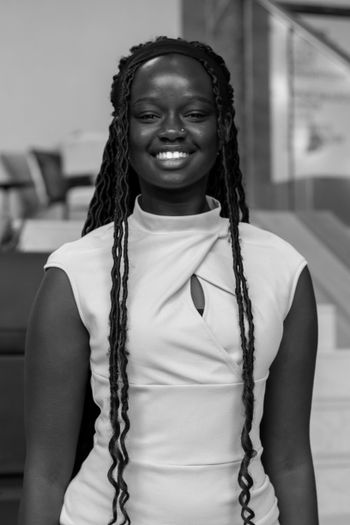University president warns lawmakers to 'think twice' about restricting DEI, scholars disagree
Plymouth State University President Dr. Donald Birx said DEI programs increase student enrollment, retention, and graduation rates.
DEI further divides students and silences debate to advance a ‘leftist political agenda,’ Dr. Adam Ellwanger said.
A New Hampshire university president recently wrote that diversity, equity, and inclusion (DEI) programs benefit higher education, but some scholars argue that evidence suggests otherwise.
Plymouth State University President Donald L. Birx argues in an opinion editorial published Aug. 28 that DEI programs equip students with the skills needed to ‘advance’ the United States, and lawmakers imposing restrictions should ‘think twice.’
[RELATED: PROF. JENKINS: The reasons why DEI is a costly failure]
“By incorporating diversity of thinking, background, and culture in a positive way as part of the college experience, we’re preparing students to be creative leaders who know how to work with others and have the skills to advance our nation,” Birx writes.
Birx, a former vice president for research and professor of physics in New Mexico says that significant developments occur when diverse ideas come together and that the same concept can be applied to DEI.
Birx added that DEI is about “embracing” differences to bridge division, expose new perspectives, and link ideas to solve significant problems. Civil discourse is a part of DEI because it puts different outlooks together to create something better, he says.
However, National Association of Scholars (NAS) members argue that DEI programs should be eliminated due to their politicized nature.
“We think that science depends upon meritocracy, which DEI undermines, perhaps fatally,” Scott Turner, a physiologist and Director of the NAS’ Diversity in the Sciences Project, told Campus Reform in April.
DEI has nothing to do with studying “electrons, photons, or organelles, or cells,” chemistry professor at the McGill University in Canada Patanjali Kambhampati also told Campus Reform in April.
Suffolk Community College Professor and Campus Reform Higher Education Fellow Nicholas Giordano said the emphasis on DEI instead of career readiness, is to blame for the trend of college grads feeling unprepared to start a career. About 72% of young adults who own university degrees say that college did not fully prepare them to start a career, according to a report by Multiverse.
Dr. Adam Ellwanger, Campus Reform Higher Education Fellow and an English Professor of the University of Houston, argues that DEI doesn’t embrace differences but divides students further. It requires the “silencing” of debate through labeling dissenting perspectives as “violent, bigoted, and privileged,” he explained.
“DEI only ‘embraces’ minorities that activists see as key to advancing a leftist political agenda,” he said. “Since it discriminates as to which minorities and differences are worthy of ‘embrace,’ it actually fosters resentments between groups – which is to say it exacerbates divides rather than closing them.”
[RELATED: University president claims DEI efforts are at the ‘core’ of the purpose of higher ed]
“DEI cannot be redeemed: the goal was never simply ‘inclusion’ or ‘equity,’ Ellwanger said. “Those terms are a cover for its true intention: culture war and the restructuring of society as dictated by leftist ideologies. Therefore, DEI can’t be retooled to ‘create something better.’ It doesn’t create -- it destroys.”
Even Cornell University President Martha Pollack emailed the campus community in August admitting that DEI and free expression are at odds with each other.
New Hampshire lawmakers proposed HB1313 in January 2022, which would make it harder for professors to impose their political beliefs or implement Critical Race Theory (CRT) in the classroom.
Florida Gov. Ron DeSantis passed legislation banning DEI initiatives in public colleges and universities. Texas Gov. Greg Abbott signed Senate Bill 17 prohibiting DEI offices in Texas public colleges and universities starting in 2024.
Other states including Oklahoma, Iowa, Mississippi, and South Carolina have also implemented DEI restrictions.
Campus Reform contacted Plymouth State University and Birx for comment. This article will be updated accordingly.

